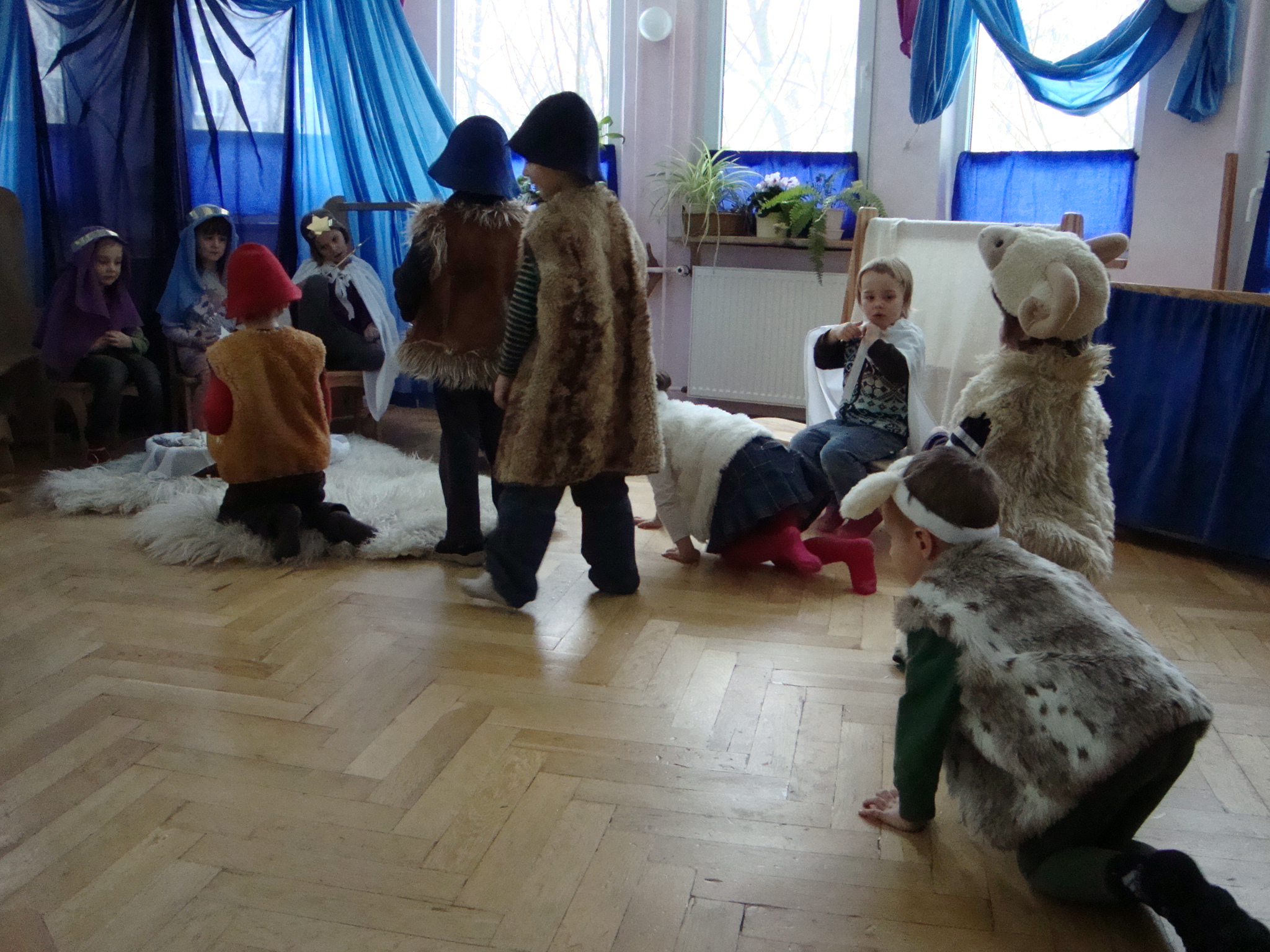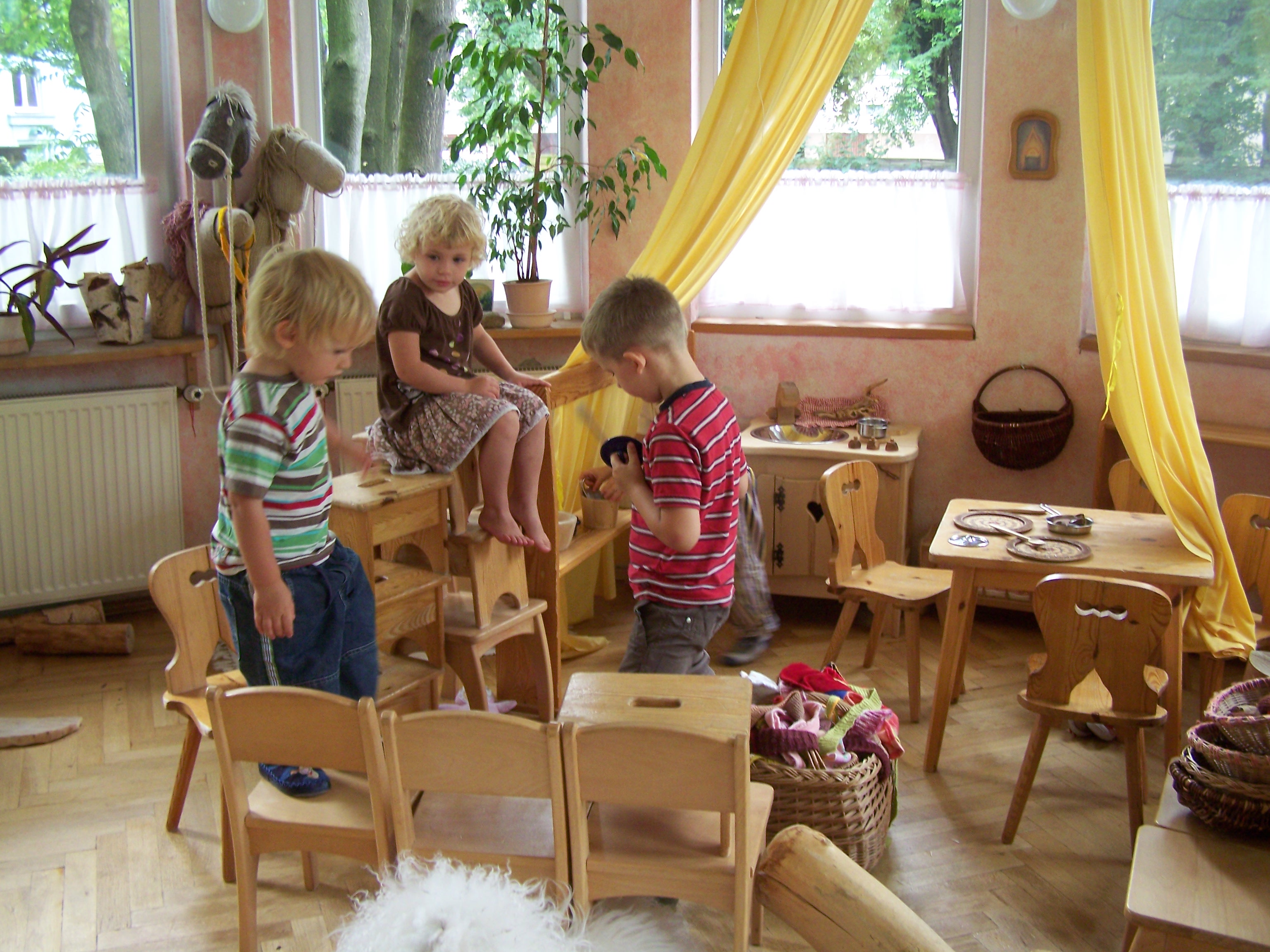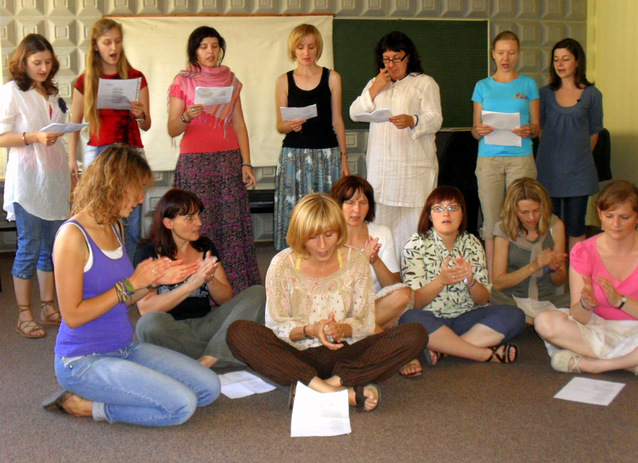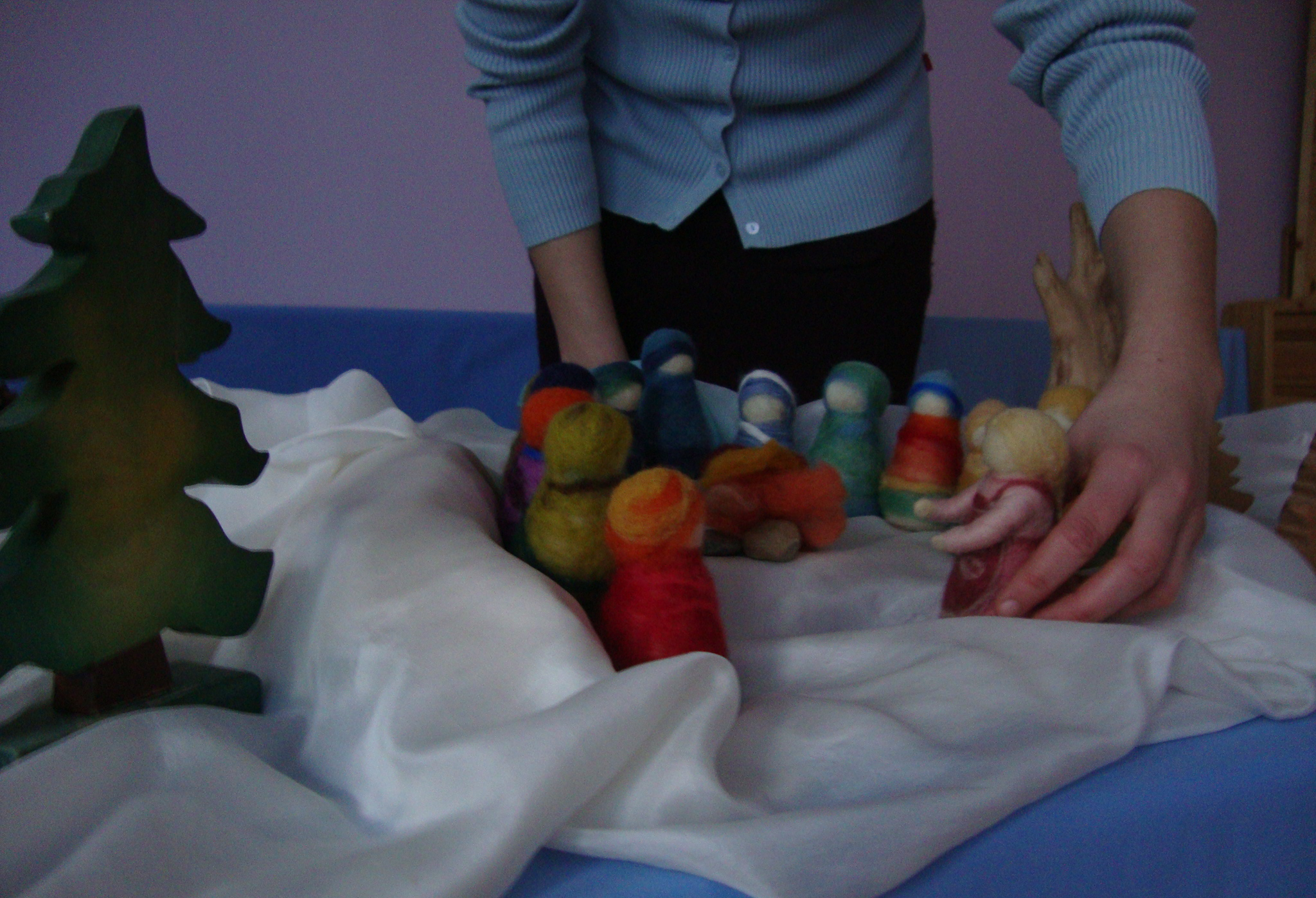There are now 10 Waldorf kindergartens in Poland. They are owned by associations, foundations or private persons and are diverse in size, number of groups and opening hours. All are funded partially through state subsidies and partially through the parents.
There are also many Waldorf-inspired kindergartens in cities like Poznań, Grudziądz, Bielsko Biała, Kraków, Wieliczka, Siemianowice and Wrocław. Some are interested in becoming Waldorf kindergartens. In Warszawa there is a Waldorf-inspired state kindergarten, also for children with disabilities.
Kindergartens do not offer day care for children under 3 years old. The need is slowly increasing and as a response, meetings or playgroups take place once a week in some kindergartens.
Children can continue Waldorf education at schools in Warszawa, Kraków, Poznań and Bielsko Biała. The schools are primary schools with 6 classes. In the first three cities there are Waldorf-inspired secondary schools with classes 7 to 9. The school in Warszawa now is planning to open upper classes 9-12.
Looking back. The first kindergartens in Poland were small groups in private flats for the teacher’s children and friends. After the political change in 1989 it become possible to talk openly about Waldorf education and anthroposophy and lectures and workshops for teachers began to take place.
It also became possible to open non-public alternative schools and kindergartens. Waldorf kindergartens began to open in the late 1980s and early 1990s, some with financial help from abroad, some on their own.
Collaboration. Waldorf kindergartens and schools are together in one association, Związek Szkół i Przedszkoli Waldorfskich w Polsce (Association of Waldorf Schools and Kindergartens in Poland). Kindergartens have their own section in the Association. The teachers meet and work together regularly. There is one big, open annual national conference and several smaller conferences or workshops during the year.
Training. In 1992, with very active help from Joop van den Heuvel from Holland and Maria Ziemska, a professor at Warsaw University, Waldorf teacher training was organized as a postgraduate study course at Warsaw University. This course of study, Podyplomowe Studium Edukacji Niezależnej, has trained kindergarten and school teachers ever since. At first the lecturers came from Holland, Germany or Austria, and now most of the lecturers are Polish.
The students come once a month to Warszawa, which is in the middle of the country and easy to reach by train, bus or car in several hours at most. They attend lectures and workshops from Friday afternoon till Sunday. They also meet for an intensive summer course and go for work experience to kindergartens in Poland or abroad.
Our concerns. Our problems are strict sanitary and epidemiological rules, which often prevent or make difficult our way of working with children. It takes a lot of time and force to talk with the officials and receive legal permission for how we work, and it is often not possible. For example, we are not allowed to cook or prepare food with the children. The kitchen must comply with such difficult requirements, that the majority of the kindergartens can’t afford it. These regulations also affect many small things like sand, chairs or towels…
Other problems come from changing educational rules and curriculums. In the last few years there have been many changes with the transition to school and the age of school entrance. The development and needs of the children in Poland are strongly influenced by economic and political interests.
The kindergartens and teacher training centers are working on presenting and popularizing Waldorf education. This education is not well known and some people in our country unfortunately have a distorted picture of it. We are working to change this.
Maja Rębkowska is a teacher in Waldorf kindergarten in Warsaw and is member of the IASWECE Council.
Website of the Waldorf Associaion in Poland





